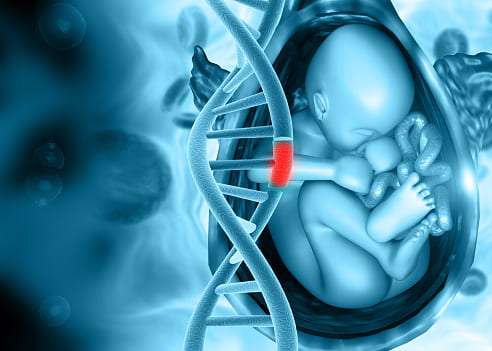The key aspects of fetal Medicine include:
Prenatal Screening and Diagnosis:
Fetal medicine specialists use advanced imaging techniques, such as ultrasound, to monitor the growth and development of the fetus throughout pregnancy. Prenatal screening and diagnostic tests, including genetic screening and testing, help identify potential fetal abnormalities or genetic conditions.
High-Risk Pregnancy Management:
Fetal medicine specialists are crucial in managing high-risk pregnancies. These may include pregnancies with maternal health conditions, multiple pregnancies (twins, triplets, etc.), fetal growth restriction, gestational diabetes, preeclampsia, or other complications that may affect the health of the mother or the baby.
Fetal Therapy and Intervention:
In certain cases, fetal Medicine may involve therapeutic interventions to address specific fetal conditions or anomalies. Fetal therapy includes procedures such as fetal blood transfusion, intrauterine surgery, or the placement of shunts to manage certain fetal conditions.
Fetal Echocardiography:
This specialized ultrasound examination evaluates the fetal heart’s structure and function, enabling the early detection and management of congenital heart defects.
Genetic Counseling:
Fetal medicine specialists counsel parents when fetal abnormalities or genetic conditions are identified. They offer information and support to help parents understand the implications of the diagnosis and make informed decisions regarding their pregnancy and the care of the baby.
Preventive Care for Future Pregnancies:
Fetal medicine specialists work closely with patients who have experienced pregnancy complications or fetal anomalies to provide guidance and preventive care for future pregnancies.
Fetal Medicine combines medical expertise with compassion and emotional support, recognizing the significance of the prenatal period in shaping a healthy and successful outcome for both the baby and the expectant mother. The field continually evolves with advancements in medical technology and research, offering hope and specialized care to expectant parents facing complex pregnancies and fetal conditions.

